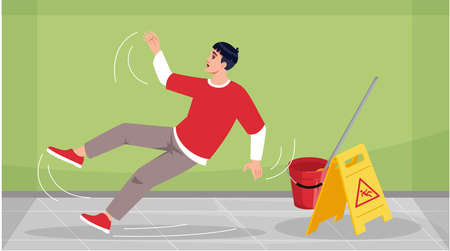1. Misunderstanding Feng Shui Principles in Western Gardens
What Is Feng Shui, Really?
Many Americans are interested in making their outdoor spaces peaceful and inviting, but sometimes the true meaning of Feng Shui gets lost along the way. Feng Shui is more than just putting up a few lucky statues or using certain colors. It’s an ancient Chinese practice about balancing energy (known as Qi) to create harmony between people and their surroundings.
Common Misconceptions in American Outdoor Spaces
Let’s look at some typical misunderstandings people have when trying to bring Feng Shui into their gardens or yards:
| Misconception | What People Think | The Real Feng Shui Principle |
|---|---|---|
| Placing Lucky Objects Anywhere | Adding Buddha statues, wind chimes, or red lanterns anywhere will boost luck. | The placement and intention matter more than the objects themselves. Randomly placing items can disrupt energy flow. |
| Focusing Only on Decor | Feng Shui is mostly about decorations and symbols. | True Feng Shui considers layout, natural elements, and how energy moves through a space—not just what you display. |
| Ignoring Nature’s Role | Plants and water features can be added without thought for placement or type. | The types of plants, where you put them, and how water flows are crucial for good Qi. |
| Thinking Bigger Is Better | Larger statues, fountains, or bold decor means better results. | Balance is key; oversized elements can overwhelm your yard’s energy. |
Key Principles Often Overlooked Outdoors
- Energy Flow Matters: Paths should curve gently rather than run straight to your door—this helps Qi flow smoothly rather than rushing out.
- Five Elements Are Essential: Wood, fire, earth, metal, and water should all appear in your garden in some form for balance. For example, wood can be plants or fences, water can be a birdbath or fountain.
- Curb Appeal Isn’t Everything: A visually pretty yard isn’t always a harmonious one. Function and comfort matter too.
- No “One-Size-Fits-All” Solution: What works for one home may not work for another. Your garden should fit your family’s needs and local environment.
Avoiding Common Mistakes: Quick Tips
- Think about how you move through your yard—is it easy and pleasant?
- Add natural elements mindfully; don’t overcrowd any area.
- Create spots for gathering as well as quiet reflection—balance activity with calmness.
- Work with your local climate; choose plants that thrive where you live.
If you understand these basics, you’re already on your way to creating a more harmonious outdoor space that feels welcoming and balanced—not just stylish!
2. Ignoring the Importance of Entryways and Pathways
Why Outdoor Entrances Matter in Feng Shui
In Feng Shui, the main entrance to your home—whether it’s a front door, driveway, or garden gate—is known as the “mouth of qi” (energy). This is where positive energy enters and nourishes your space. For many American homes, outdoor entryways are often treated purely for function or curb appeal, but their placement and design can either welcome good fortune or block it entirely.
Common Landscaping Mistakes with Pathways and Driveways
| Mistake | Feng Shui Impact | How to Fix It |
|---|---|---|
| Straight driveways/pathways leading directly to the door | Energy rushes too quickly towards the house, missing opportunities for accumulation and harmony. | Add gentle curves or plantings along the edge to slow down and “soften” energy flow. |
| Cluttered or blocked entryways (shoes, bins, tools) | Blocks positive qi from entering, leading to stagnation and missed opportunities. | Keep entrances clear and tidy; use storage solutions to organize clutter out of sight. |
| Poorly lit entrances at night | Darkness discourages energy and visitors alike, creating an unwelcoming vibe. | Add warm lighting along pathways and near doors for safety and a welcoming feel. |
| Overgrown plants or shrubs blocking pathways | Obstructs energy flow and can make visitors feel unwelcome or uneasy. | Trim back greenery regularly; choose low-maintenance plants that frame rather than block paths. |
The Power of Intention in Design
Many Americans focus on visual impact—like bold front doors or dramatic walkways—without considering how these features influence energy movement. In Feng Shui, every design choice should support a smooth, meandering journey for both people and energy from the street to your front step. When you treat your entryway with care and intention, you invite prosperity, health, and happiness into your home—one step at a time.

3. Choosing the Wrong Plants and Natural Elements
Common Outdoor Plant Selection Mistakes
One of the most frequent outdoor Feng Shui mistakes Americans make is picking popular plants that clash with good energy flow. Many people choose their landscaping based on what’s trending or what looks great at the local garden center, but not all plants are equal when it comes to harmony and luck. For example, cactus and spiky plants are loved in many American gardens for their low maintenance, but in Feng Shui, they can bring sharp, negative energy near your front door or patio. Similarly, some homeowners love dramatic weeping willows or large evergreens close to the house, which can block positive Chi (energy) and make a space feel heavy.
Neglecting the Five Elements
Feng Shui is all about balance between the five elements: Wood, Fire, Earth, Metal, and Water. A common mistake is overloading on one element—like using only wood decking, wooden furniture, and lots of leafy green plants—while ignoring the others. This creates an imbalance that can affect everything from family relationships to prosperity.
How to Balance the Five Elements in Your Yard
| Element | Examples for Outdoor Use | What to Avoid |
|---|---|---|
| Wood | Trees, shrubs, wooden fences or decks | Overcrowding with large trees or thick hedges |
| Fire | Outdoor lighting, red flowers, fire pits | Too many sharp red or orange accents |
| Earth | Ceramic pots, rocks, stone paths | Barren gravel areas with no life or color |
| Metal | Wind chimes, metal sculptures, patio furniture | Rusty or broken metal items left outside |
| Water | Ponds, fountains, birdbaths | Stagnant water features or broken fountains |
American Favorites That May Hurt Feng Shui Flow
Certain plants are especially popular in American yards but can disrupt harmony if not placed thoughtfully:
- Cactus: Great for drought-tolerance but best kept away from main entrances; their spikes create harsh energy.
- Pine Trees: Symbolize longevity but planted too close to the home can trap moisture and block positive energy.
- Ivy and Vines: While they look lush on fences or walls, letting them overtake structures can represent problems growing out of control.
- Bare Lawns: An obsession with perfectly trimmed grass sometimes leads to a lack of natural variety and vibrancy needed for healthy energy flow.
- Dried or Artificial Plants: These don’t support life force (Chi) and may drag down the energy around them.
Tips for Healthier Outdoor Feng Shui Choices
- Select native plants that thrive in your region—they’re more likely to stay healthy and vibrant.
- Add at least one element from each category in your yard for better balance.
- Avoid dead plants and keep your garden well-maintained to encourage fresh energy.
- If you love certain American favorites like roses or hydrangeas, place them where they’ll get plenty of light and won’t overcrowd pathways.
- If you want a water feature, keep it clean and make sure water flows towards your home (symbolizing wealth coming in).
4. Overcrowding or Clutter in Outdoor Spaces
One of the most common outdoor Feng Shui mistakes in American homes is overcrowding yards and patios with too much décor, furniture, and garden structures. While it’s tempting to fill every corner with statues, benches, planters, or holiday decorations, too many items can block the flow of positive energy (Chi) and create a sense of chaos instead of harmony.
How Clutter Affects Outdoor Energy
Excessive clutter in your yard doesn’t just look messy—it disrupts the natural movement of energy around your home. This can lead to feelings of stress, restlessness, or even stagnation for those living there. In Feng Shui, clear pathways and open spaces are important for allowing good energy to circulate freely.
Common Sources of Outdoor Clutter in American Yards
| Source | Examples |
|---|---|
| Overdecorating | Too many garden gnomes, wind chimes, or seasonal ornaments |
| Excess Furniture | Multiple benches, chairs, tables packed into small areas |
| Unused Items | Old grills, broken planters, unused sports equipment |
| Storage Overflow | Sheds overflowing with tools or supplies spilling into the yard |
Strategies to Reduce Clutter and Improve Energy Flow
- Edit Your Decor: Choose a few meaningful pieces rather than displaying everything at once. Rotate seasonal items and keep only what you truly love.
- Create Clear Pathways: Make sure walkways are free from obstacles. Open pathways invite positive energy into your space and make your yard more welcoming.
- Organize Storage: Use sheds or storage boxes to keep tools and equipment out of sight. Regularly declutter these spaces to prevent overflow.
- Select Multi-Functional Furniture: Opt for outdoor furniture that serves more than one purpose (like benches with storage underneath) to save space.
- Pare Down Plantings: Avoid overcrowding flower beds or planters. Give each plant room to breathe for better growth and healthier energy.
A Quick Checklist for a Harmonious Outdoor Space
- Is there a clear entryway to your yard?
- Can you walk through your outdoor space without bumping into anything?
- Are all decorative items clean and in good condition?
- Is storage neat and out of sight?
- Do you feel calm when spending time outside?
Tidying up and being intentional about what you keep outdoors can make a big difference in how your space feels. Reducing clutter lets energy—and you—move more freely, creating a backyard that’s both beautiful and balanced according to Feng Shui principles.
5. Neglecting Water Features or Improper Placement
The Vital Role of Water in Feng Shui
In Feng Shui, water is more than just a decorative element—it’s considered a powerful symbol of wealth, abundance, and positive energy (chi). When used correctly in outdoor spaces, water features can enhance prosperity and bring harmony to your home environment. However, if placed incorrectly, these same features can create stagnant energy or even attract misfortune.
Common American Mistakes with Outdoor Water Features
Many American homeowners love having pools, fountains, or ponds in their yards. But common mistakes often occur because the placement isn’t guided by Feng Shui principles. Here are some frequent errors:
| Mistake | Why It’s a Problem | Feng Shui Tip |
|---|---|---|
| Pools behind the house with no view from indoors | You miss out on the beneficial energy flow; out of sight means out of mind for chi as well! | Place water features where you can see them easily from main living areas to attract prosperity into the home. |
| Ponds or fountains directly aligned with the front door | This can cause energy to rush in too quickly or escape, leading to instability in wealth or emotions. | Position water slightly off-center from the entrance and make sure it flows gently towards the house—not away from it. |
| Stagnant or dirty water | Still, murky water attracts negative energy and may even impact health and mood. | Keep all water features clean and moving—think bubbling fountains instead of still ponds. |
| Pools taking up most of the backyard space | This can overwhelm the balance between elements, leaving no room for earth (plants), which is essential for grounding energy. | Balance large water features with lush landscaping and defined pathways. |
How Proper Placement Attracts Prosperity
The right location for your pool, pond, or fountain matters. In Feng Shui, placing a water feature near the front of your property (but not directly in line with the door) is believed to invite wealth and good fortune inside. If you already have a backyard pool, consider adding lighting or attractive plantings so it feels connected to your home and daily life rather than isolated. Always ensure water flows towards your house—a subtle sign that abundance is coming your way.


